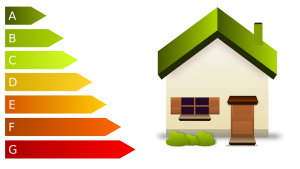Too Many Requests from Your Network
Please complete verification to access this content.
With its captivating landscapes, vibrant culture, and booming real estate market, Thailand has become an attractive destination for foreigners looking to invest in property, particularly condominiums. However, navigating the intricacies of purchasing real estate in a foreign country can be daunting. To help ease the process, here are some essential tips for foreigners considering buying a condo in Thailand.
Understanding Foreign Ownership Restrictions:
Foreigners are permitted to purchase and possess condominium units outright; however, there are restrictions on the number of units foreigners can own within a single building. According to the Condominium Act of 1979, the collective floor area of foreign-owned units can be at most 49% of the entire structure. Consequently, additional acquisitions by foreigners are prohibited if a building has already reached this maximum foreign ownership threshold.
Practical Tips for Foreign Buyers:
Now that you understand the legal framework surrounding foreign ownership of condos in Thailand let’s delve into practical tips to ensu

re a smooth and successful purchasing process.
- Understand Ownership Laws: Foreigners are generally restricted from owning land in Thailand but can own condominium units outright if specific criteria are met. It’s crucial to familiarize yourself with the relevant laws and regulations governing foreign property ownership in Thailand to avoid any legal complications.
- Location Matters: Research thoroughly the location of the condo you’re interested in. Consider factors such as proximity to amenities, transportation hubs, and potential for rental income if you buy for investment purposes.
- Engage a Reliable Lawyer: Given the legal complexities involved in property transactions, hiring a reputable lawyer with expertise in real estate law is highly recommended.
- Verify Developer Credibility: Before committing to a purchase, thoroughly vet the reputation and track record of the property developer.
- Budget Wisely: Set a realistic budget that accounts for not only the purchase price but also additional costs such as taxes, legal fees, maintenance fees, and any renovation expenses.
- Check Title Deed and Ownership: Verify the legitimacy of the property’s title deed and ensure that the seller has the legal right to sell the condominium.
- Consider Financing Options: While some foreigners purchase condos in Thailand outright, others may explore financing options available through local banks or financial institutions.
- Explore Condo Facilities and Management: Assess the facilities and amenities offered by the condominium, such as swimming pools, gyms, security, and maintenance services.
- Understand Visa and Residency Requirements: Buying a condo in Thailand may present opportunities for obtaining long-term visas or residency permits.
- Seek Professional Advice: Don’t hesitate to seek advice from real estate agents, expatriates living in Thailand, and other professionals who have experience buying property as a foreigner.
Conclusion:
In conclusion, buying a condo in Thailand as a foreigner can be a rewarding investment, but it requires careful planning, due diligence, and adherence to legal requirements. By following these tips and seeking professional guidance, you can confidently navigate the process and make a successful investment in Thailand’s thriving real estate market.




